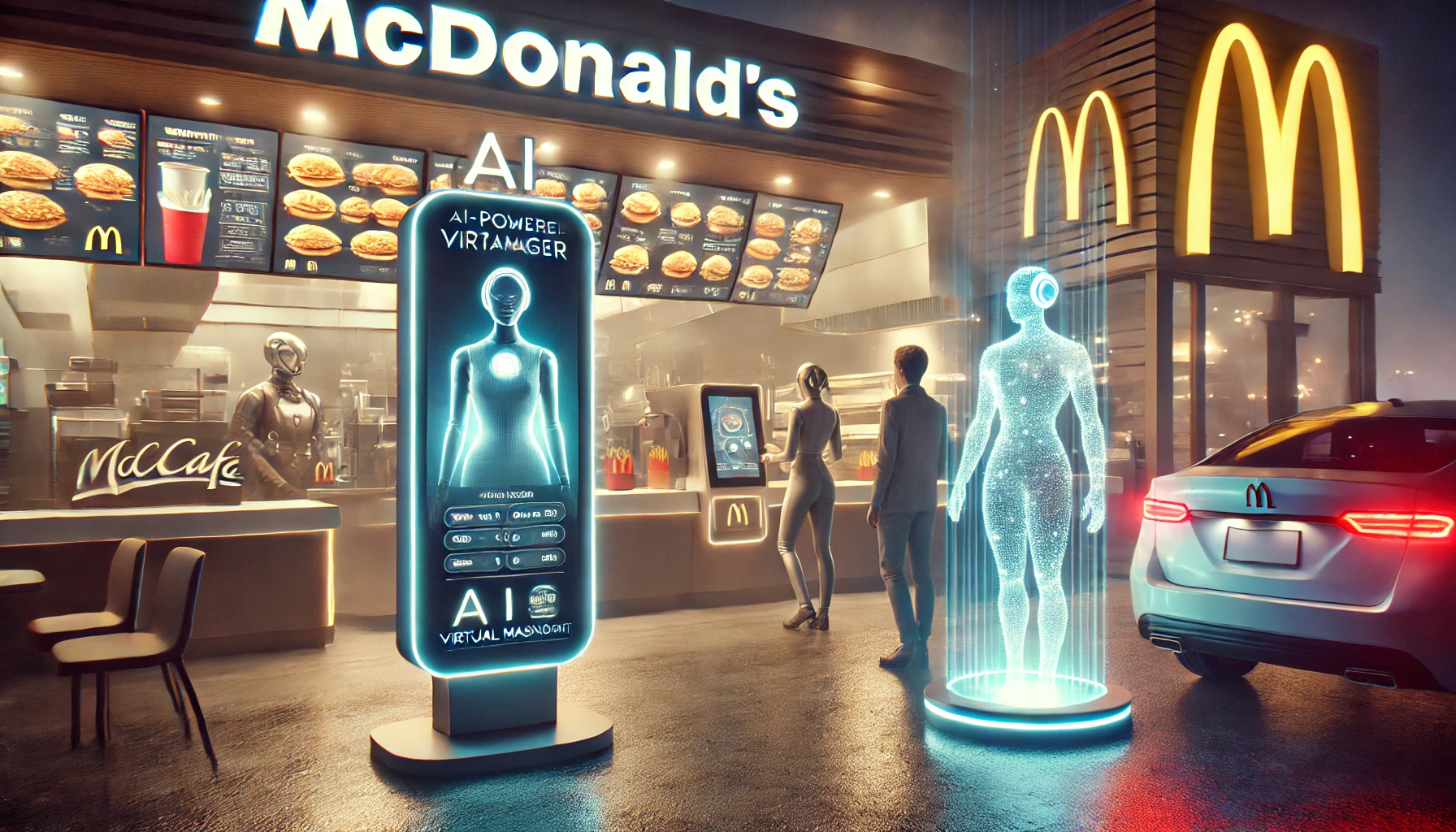
AI Revolution: McDonald’s Introduces Virtual Managers for Your Orders
The fast-food giant McDonald’s is embracing artificial intelligence (AI) to streamline customer service, introducing AI-powered virtual managers that take your orders. This technological shift signals a new era in the restaurant industry, where automation and efficiency go hand in hand. But what does this mean for customers and employees alike? Let’s dive in.
The Role of AI in McDonald’s Operations
McDonald’s has long been at the forefront of innovation in the fast-food industry. From self-service kiosks to mobile ordering apps, the company consistently explores technology-driven solutions to enhance customer experience. Now, the integration of AI virtual managers takes efficiency to the next level.
What Are AI-Powered Virtual Managers?
AI-powered virtual managers are digital assistants that handle customer interactions, particularly in the ordering process. These systems use natural language processing (NLP) to understand and process requests accurately, minimizing errors and improving order speed.
- They take customer orders at drive-thrus and self-service kiosks.
- AI ensures accuracy by cross-checking order details.
- They interact with customers using voice recognition technology.
Why McDonald’s Chose AI for Order Management
McDonald’s AI move is part of a broader effort to increase automation and efficiency in fast food. The key advantages of AI-powered virtual managers include:
- Speed Improvement: AI streamlines the ordering process, reducing wait times.
- Error Reduction: The technology minimizes human errors, ensuring order accuracy.
- Better Customer Experience: AI-driven conversations enable smoother interactions.
How AI Affects Employees and Customer Interactions
While AI-powered ordering systems boost operational efficiency, they also raise questions about the impact on human employees. With increased automation, concerns about job displacement are natural.
Job Transformation vs. Job Loss
Although AI handles repetitive tasks like order-taking, employees remain crucial for food preparation, customer assistance, and maintaining restaurant quality. Instead of completely replacing jobs, AI allows teams to focus on higher-value tasks, such as customer service and food presentation.
Customer Reactions to AI Implementation
Customer experiences with AI order management vary. While many appreciate faster service and improved accuracy, some still prefer human interaction, especially in handling unique orders or special requests.
Fast Food Industry Trends in AI and Automation
McDonald’s isn’t the only fast-food chain investing in AI. Major brands like Burger King and Taco Bell are also exploring automation to enhance operations. The increasing adoption of AI in the food industry highlights several emerging trends:
- AI-Powered Chatbots: Restaurants integrate AI assistants into mobile apps for seamless customer support.
- Automated Food Preparation: Companies experiment with robotic kitchen staff to accelerate order fulfillment.
- Predictive Analytics: AI-driven data analysis helps forecast customer demand for efficient inventory management.
The Future of AI in Fast Food
The rapid advancement of AI in the restaurant industry suggests a future where technology plays an even greater role in daily operations. From automating kitchen tasks to personalizing marketing strategies, AI will continue to define the fast-food landscape.
Key Takeaways for Businesses
As more restaurants integrate AI-driven systems, businesses must adapt to stay competitive. Key considerations include:
- Balancing automation with human oversight to maintain customer trust.
- Ensuring AI technology enhances, rather than replaces, the human workforce.
- Regularly updating AI systems to improve functionality and efficiency.
Conclusion
McDonald’s AI revolution represents a significant shift in the fast-food industry. Virtual managers improve efficiency, reduce errors, and enhance customer satisfaction, but they also introduce challenges related to job displacement and adapting to new technology.
As AI continues to evolve, restaurants must strike a balance between automation and personalized service to maintain strong customer relationships. What do you think about AI-powered virtual managers? Share your thoughts in the comments!
